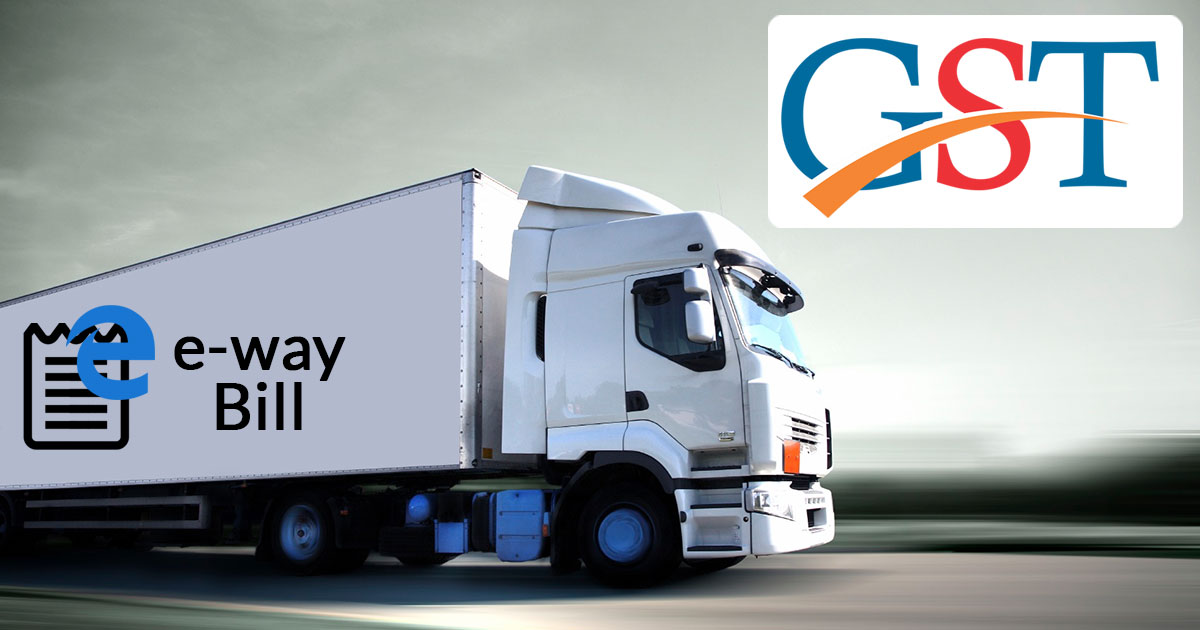The e-way bill is on the rest for now but soon it can be another barrier for small and medium enterprises after the recognized GST implementation. In the 22nd meeting of GST Council, it was announced that the introduction of an e-way bill will start w.e.f January 2018 in a definite and strategic way and the implementation of the e-way bill is predicted by April 2018 within the country.
In the e-waybill process, the suppliers and recipient will have to feed data online on GSTN portal (Goods and Services Tax) about the goods before transporting it within a state or out of a state. The threshold limit is about to put 50,000. Above the threshold limit, it will be mandatory to generate an e-way bill for any transportation services. After e-way bill generation, a unique e-way bill number (EBN) will be provided on GSTN portal to the entity involved in the process that is a supplier, a transporter, and a buyer.
Read Also: A Complete Guide For GST E-Way Bill Along with Latest News
The objective behind e-way bill implementation is to overcome the huge documentation occurs at each state, to provide a quick transition of Goods by overcoming the time spent at various check-posts within the country, and to limit the corruption at each stage. One of the reasons in deferment of e-way bill implementation is the errors faced by GSTN system in handling the immediate rush occurred at common portal while filing GST returns and uploading invoices.
Regarding the same Abhishek Jain, Partner, Ernst & Young said, “If the government wants to implement it, then a key prerequisite will be to put E-way bill IT infrastructure in place and test it beforehand. Failing which, a situation like that of GSTN may arise, and that would add to woes of smaller companies which may not be technologically equipped. E-way bill mechanism adds a layer of compliance and if implemented without IT preparedness, then defeats the purpose of GST, which is to boost ease of doing business in India.”
As per the e-way bill rules under GST, the validation period for an e-way bill number (EBN) will be based on the time duration and specified distance travelled by the bill. For each 100-km journey, the validity time for the e-way bill will be one day only. In addition, for extra 100 km journey and more, the validity will depend on one additional day on each 100 km covered. Some critics have considered it as the barrier in the transportation of Goods within a city.
Sunil Shankar, business head at Mirc Electronics Ltd. Said, “It is a real-time system with a validity of the bill decided beforehand for a particular transaction. This could, in fact, add to the transit time for smaller quantities of goods within a city. Larger players like us would manage to incur the cost, but for smaller entities, it is a huge challenge”
The e-way bill is expected to track by the Radio frequency identification device installed on the vehicle of the transporter to track the soft copy provided for an e-way bill. Some are expecting that this way of installation of the system will burden on small traders with additional cost and the facility can be taken for advantage by the taxpayers as they can impediment the journey to check the e-way bill and check the consignment can happen physically.
Recommended: Why Carpet Industry Need Help After GST Implementation?
Sunu Mathew, MD at LEAP India said that E-way bill will harm the companies in case of errors in e-way bill generation and change in location as the state government not let them do the transportation of Goods.
Anita Rastogi, Indirect tax partner at PwC India also showed the concern over the e-way bill implementation procedure and said, “In the pre-GST era, value-added tax (VAT) rates differed from state to state, so there were cases when companies would transport goods from higher VAT to lower VAT states, but now with GST fixed on each product, that VAT arbitrage has gone. E-way bill is an outdated concept; it is like moving one step backward to the License Raj.”
The FM, Arun Jaitley spoke last week over the e-way bill that the software has experienced the check process in Karnataka on an elementary basis and the result is favouring the success.
Although the e-way bill is aimed to relieve the hurdles faced by logistics industry and cost down the freight charges, proper implementation is necessary to succeed in an endeavour. The relief can be converted into a drastic pain in lack of system errors and improper implementation. So, smooth implementation and easy to proceed system need to be configured to fulfil its objective.
